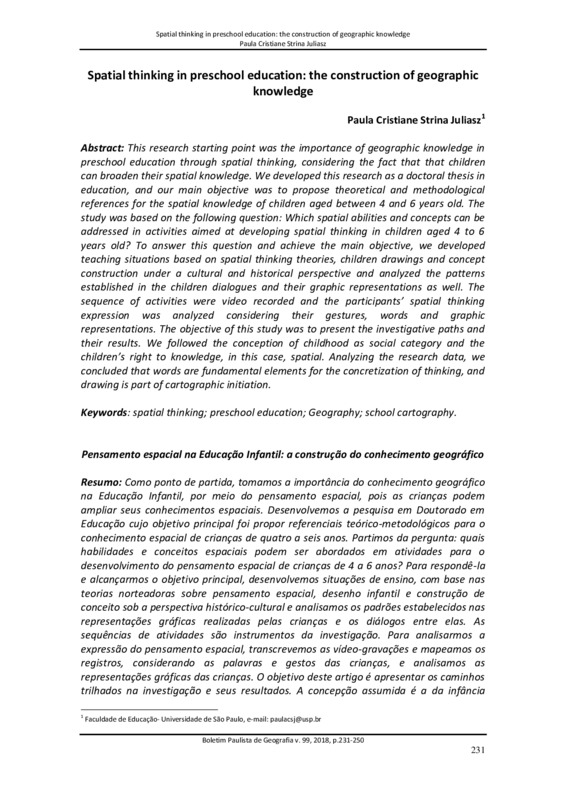Spatial thinking in preschool education: the construction of geographic knowledge
Item
-
Título
-
Spatial thinking in preschool education: the construction of geographic knowledge
-
Boletim Paulista de Geografia
-
USP
-
Autor
-
Paula Cristiane Strina Juliasz
-
Assunto
-
Geography
-
preschool education
-
school cartography.
-
spatial thinking
-
Abstract
-
This research starting point was the importance of geographic knowledge in preschool education through spatial thinking, considering the fact that that children can broaden their spatial knowledge. We developed this research as a doctoral thesis in education, and our main objective was to propose theoretical and methodological references for the spatial knowledge of children aged between 4 and 6 years old. The study was based on the following question: Which spatial abilities and concepts can be addressed in activities aimed at developing spatial thinking in children aged 4 to 6 years old? To answer this question and achieve the main objective, we developed teaching situations based on spatial thinking theories, children drawings and concept construction under a cultural and historical perspective and analyzed the patterns established in the children dialogues and their graphic representations as well. The sequence of activities were video recorded and the participants’ spatial thinking expression was analyzed considering their gestures, words and graphic representations. The objective of this study was to present the investigative paths and their results. We followed the conception of childhood as social category and the children’s right to knowledge, in this case, spatial. Analyzing the research data, we concluded that words are fundamental elements for the concretization of thinking, and drawing is part of cartographic initiation.
-
volume
-
99
-
Páginas
-
231-250
-
Date
-
2018
-
Língua
-
en
-
issn
-
2447-0945
-
título curto
-
Spatial thinking in preschool education
-
Rights
-
Direitos autorais 2018 Paula Cristiane Strina Juliasz


